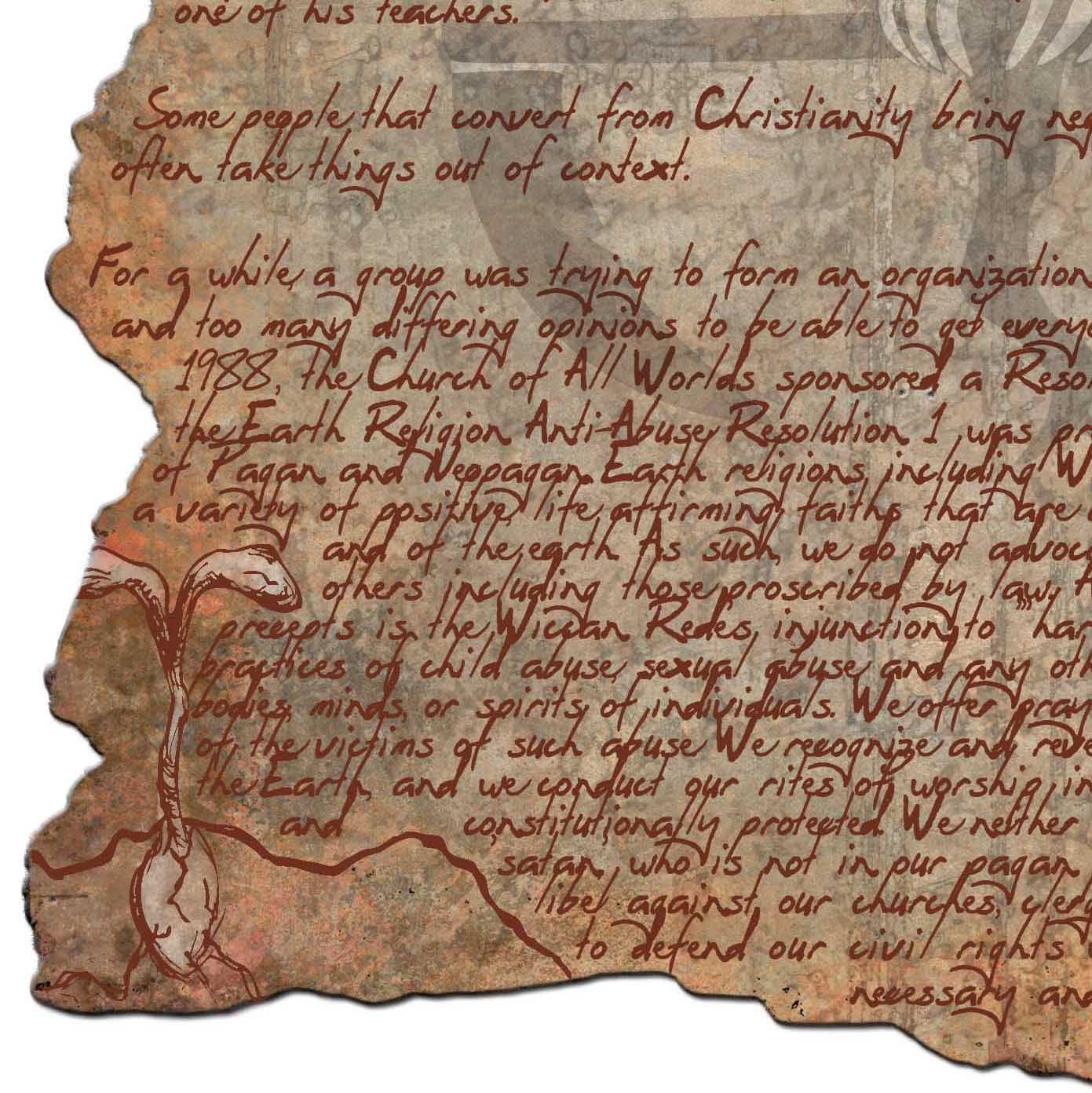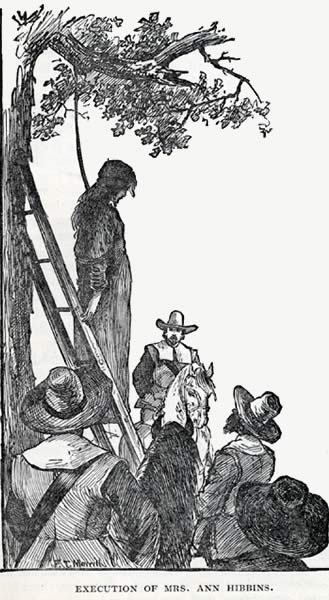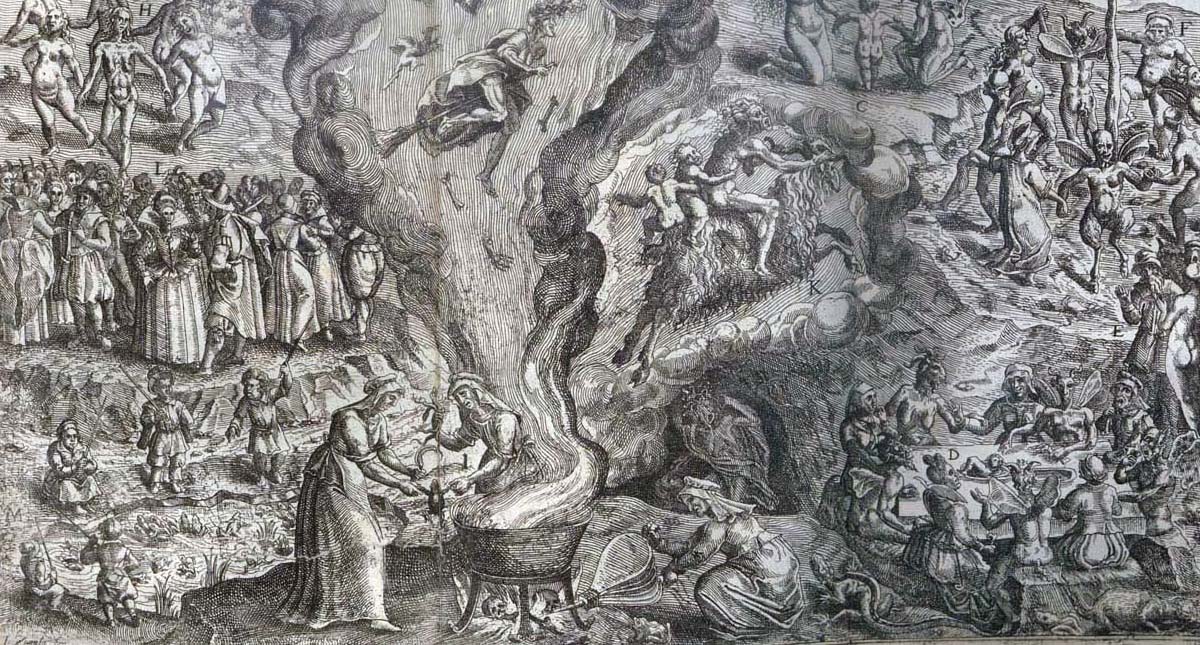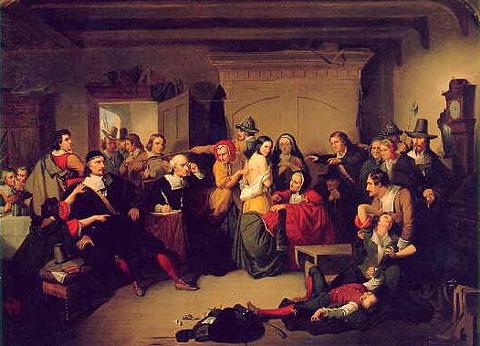History Of Witchcraft Details
In Ancient Greece, for example, Theoris, a woman of Lemnos, who is denounced by Demosthenes, was publicly tried at Athens and burned for her necromancy. Lemnos was sacred to Hephaestus, who is said to have fallen here when hurled by Zeus from Olympus. The workshops of the Smith-God in ancient legend were supposed to be on the island, although recent geologists deny that this area was ever volcanic, and the fires which are spoken of as issuing from it must be considered gaseous. Later the officinae of Hephaestus were placed in Sicily and the Lipari Islands, particularly Hiera.
In Ancient Rome black magic was punished as a capital offence by the Law of the Twelve Tables, which are to be assigned to the 5th century BC, and, as Livy records, from time to time Draconian statutes were directed against those who attempted to blight crops and vineyards or to spread disease amongst flocks and cattle. The terms of the frequent references in Horace to Canidia illustrate the odium in which sorceresses were held.
Under the Empire, in the third century, the punishment of burning alive was enacted by the State against witches who compassed another person's death through their enchantments.[1] Nevertheless, all the while normal legislation utterly condemned witchcraft and its works, whilst the laws were not merely carried out to their very letter, but reinforced by such emperors as Claudius, Vitelius, and Vespasian.
In the imperial period, it is evident from many Latin authors and from the historians that Rome swarmed with occultists and diviners, many of whom in spite of the Lex Cornelia almost openly traded in poisons, and not infrequently in assassination to boot. Paradoxical as it may appear, such emperors as Augustus, Tiberius, and Septimius Severus, whilst banishing from their realms all seers and necromancers, and putting them to death, in private entertained astrologers and wizards among their retinue, consulting their art upon each important occasion, and often even in the everyday and ordinary affairs of life. These prosecutions are significant, as they establish that and the prohibition under severest penalties, the sentence of death itself of witchcraft was demonstrably not a product of Christianity, but had long and necessarily been employed in the heathen world and among pagan peoples and among polytheistic societies.
In Ancient Greece, for example, Theoris, a woman of Lemnos, who is denounced by Demosthenes, was publicly tried at Athens and burned for her necromancy. Lemnos was sacred to Hephaestus, who is said to have fallen here when hurled by Zeus from Olympus. The workshops of the Smith-God in ancient legend were supposed to be on the island, although recent geologists deny that this area was ever volcanic, and the fires which are spoken of as issuing from it must be considered gaseous. Later the officinae of Hephaestus were placed in Sicily and the Lipari Islands, particularly Hiera.
In Ancient Rome black magic was punished as a capital offence by the Law of the Twelve Tables, which are to be assigned to the 5th century BC, and, as Livy records, from time to time Draconian statutes were directed against those who attempted to blight crops and vineyards or to spread disease amongst flocks and cattle. The terms of the frequent references in Horace to Canidia illustrate the odium in which sorceresses were held.
Under the Empire, in the third century, the punishment of burning alive was enacted by the State against witches who compassed another person's death through their enchantments.[1] Nevertheless, all the while normal legislation utterly condemned witchcraft and its works, whilst the laws were not merely carried out to their very letter, but reinforced by such emperors as Claudius, Vitelius, and Vespasian.
In the imperial period, it is evident from many Latin authors and from the historians that Rome swarmed with occultists and diviners, many of whom in spite of the Lex Cornelia almost openly traded in poisons, and not infrequently in assassination to boot. Paradoxical as it may appear, such emperors as Augustus, Tiberius, and Septimius Severus, whilst banishing from their realms all seers and necromancers, and putting them to death, in private entertained astrologers and wizards among their retinue, consulting their art upon each important occasion, and often even in the everyday and ordinary affairs of life. These prosecutions are significant, as they establish that and the prohibition under severest penalties, the sentence of death itself of witchcraft was demonstrably not a product of Christianity, but had long and necessarily been employed in the heathen world and among pagan peoples and among polytheistic societies.
History Of Witchcraft
History Of Witchcraft
History Of Witchcraft
History Of Witchcraft
History Of Witchcraft
History Of Witchcraft
History Of Witchcraft
History Of Witchcraft
History Of Witchcraft
History Of Witchcraft
History Of Witchcraft
History Of Witchcraft
History Of Witchcraft
History Of Witchcraft
History Of Witchcraft
History Of Witchcraft
History Of Witchcraft
History Of Witchcraft
History Of Witchcraft
History Of Witchcraft
History Of Witchcraft

















I was diagnosed with Parkinson’s disease four years ago. For over two years, I relied on Levodopa and several other medications, but unfortunately, the symptoms kept getting worse. The tremors became more noticeable, and my balance and mobility started to decline quickly. Last year, out of desperation and hope, I decided to try a herbal treatment program from NaturePath Herbal Clinic.
ReplyDeleteHonestly, I was skeptical at first, but within a few months of starting the treatment, I began to notice real changes. My movements became smoother, the tremors subsided, and I felt steadier on my feet. Incredibly, I also regained much of my energy and confidence. It’s been a life-changing experience I feel more like myself again, better than I’ve felt in years.If you or a loved one is struggling with Parkinson’s disease, I truly recommend looking into their natural approach. You can visit their website at [www .naturepathherbalclinic .com.] info@naturepathherbalclinic .com